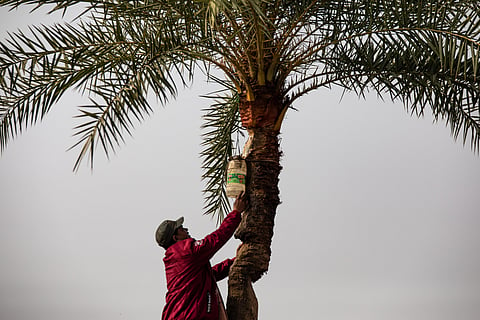
In Jharkhand, toddy tapping is a traditional practice that holds both cultural and economic significance, particularly in rural and tribal communities. The process of toddy tapping involves extracting sap from date palm trees, locally known as khejur trees.
Skilled tapers climb these tall trees, often using basic tools, to make an incision in the flower stem, allowing the sap to flow into containers attached to the tree.
The freshly collected sap is sweet and non-alcoholic, but as it ferments over time, it turns into taadi, a mildly alcoholic drink that is enjoyed by locals.
This beverage is consumed in many rural areas of Jharkhand and is deeply embedded in the social and cultural fabric of the region, particularly during festivals or special occasions.
Legal regulations around alcohol production and the commercialisation of other alcoholic drinks have affected the demand for traditional toddy.
Environmental factors also threaten the livelihood of toddy tappers, as the number of date palm trees is slowly dwindling due to deforestation and climate change. Without sustainable tapping practices and conservation efforts, the tradition faces the risk of fading away.